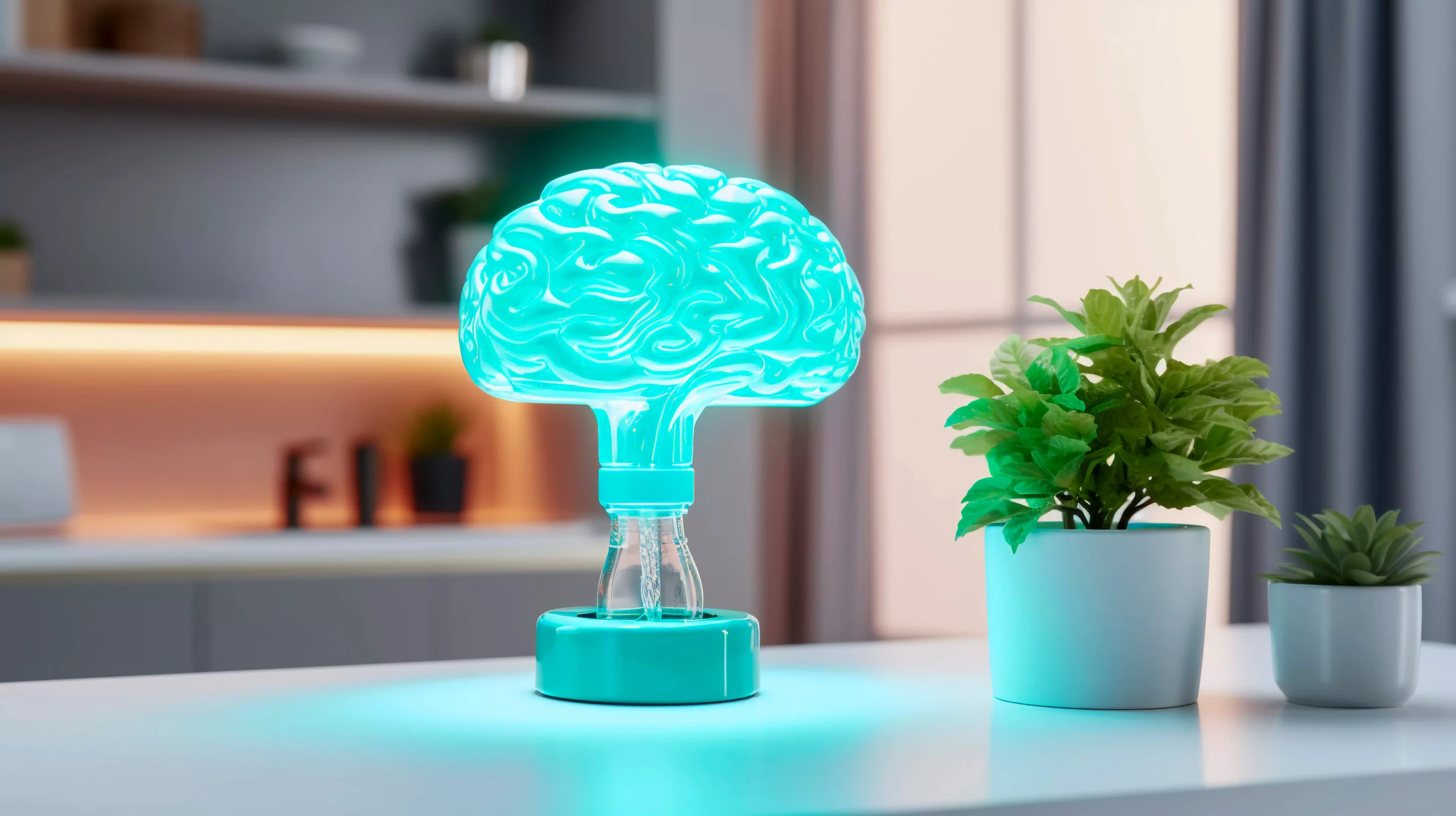In today’s fast paced world, the intersection of technology and mental health is more important than ever. As digital tools become an integral part of our lives, they hold the potential to both enhance and challenge our mental well being. From mental health apps to online therapy platforms, technology is offering new ways to manage stress, anxiety, and depression, making mental health care more accessible.
However, with the rise of screen time and social media, there are also concerns about their impact on our mental state. In this article, we’ll explore how technology can benefit mental health, while also discussing the potential risks and how to find a healthy balance. Whether you’re a tech enthusiast or someone looking for ways to improve your mental well being, the relationship between these two fields is shaping the future of mental health care.
Technology and Mental Health: A 2025 Perspective
The relationship between technology and mental health has become a major topic of discussion in 2025, as digital advancements continue to shape the way we think, feel, and interact with the world. From mental wellness apps and AI driven therapy to the effects of social media, remote work, and screen time, technology plays a significant role in both improving and challenging mental well being.
While digital solutions offer mindfulness tools, virtual counseling, and mental health tracking, excessive reliance on technology can lead to stress, anxiety, and digital burnout. Understanding the balance between technology’s benefits and its mental health risks is crucial for a healthier, more mindful future.
The Impact of Technology on Mental Health
Technology influences how we manage stress, connect with others, and access mental health resources.AI powered mental health apps, teletherapy, and meditation platforms provide convenient support. Excessive screen time, social media addiction, and digital fatigue contribute to anxiety and depression.
Wearable devices and mood tracking technology help individuals monitor emotional well being. The key to healthy digital use is balance, digital detox strategies, and mindful tech consumption.
The Role of AI and Mental Health Apps
AI driven mental health apps use chatbots, cognitive behavioral therapy (CBT), and mood tracking to provide personalized support. Telemedicine and online therapy platforms have expanded access to professional mental health care. Virtual therapy sessions with licensed psychologists and AI powered chat assistants make counseling more accessible.
- Machine learning algorithms analyze emotional patterns to recommend coping strategies.
- AI driven mental health technology is expected to grow, enhancing personalized mental health care solutions.
Social Media and Its Psychological Effects
Social media can boost connectivity and self expression but also contribute to anxiety, depression, and cyberbullying. Doom scrolling, comparison culture, and unrealistic beauty standards impact self esteem and mental health.
Platforms are now integrating AI driven mental health interventions to detect and support struggling users. Digital detoxes, mindful social media use, and positive content curation improve emotional well being. Studies in 2025 highlight the importance of setting boundaries, using screen time limits, and engaging in offline activities.
Remote Work, Digital Fatigue, and Mental Well being
The rise of remote work and virtual collaboration tools has transformed workplace mental health. Zoom fatigue, blurred work life boundaries, and digital overload increase stress levels. Employers are focusing on mental health policies, flexible work hours, and virtual wellness programs.
AI driven work life balance tools and smart scheduling software help reduce burnout. Finding a healthy balance between online and offline work is key to sustaining long term productivity and well being.
Digital Detox: The Key to Mental Wellness
A digital detox involves taking intentional breaks from technology to reset the mind.
- Reducing screen time, practicing mindfulness, and engaging in outdoor activities improve mental clarity.
- Apps now offer screen time tracking, focus modes, and guided tech free activities to promote well being.
- Neuroscientists suggest periodic digital breaks to enhance cognitive function and emotional stability.
- A mindful approach to technology helps people reconnect with real life experiences and mental wellness.
Wearable Technology for Mental Health Monitoring
Smartwatches, biosensors, and neurofeedback headsets now track mental well being in real time. Heart rate variability (HRV), sleep tracking, and stress level analysis help users understand emotional fluctuations. Wearables integrated with AI driven mental health recommendations provide insights for stress reduction.
Personalized meditation guidance, breathwork coaching, and sleep optimization tools enhance relaxation. The future of mental health wearables includes brainwave monitoring and AI driven mood prediction models.
The Future of Technology and Mental Health in 2025
Neurotechnology, AI driven therapy bots, and VR based mental health treatments are revolutionizing mental wellness. Emerging digital mental health platforms offer 24/7 support, personalized insights, and emotional coaching.
Augmented reality (AR) and immersive mindfulness experiences create calming virtual environments. Ethical concerns regarding data privacy, AI based diagnosis, and mental health misinformation must be addressed.
By 2025, integrating AI, digital wellness strategies, and ethical tech policies will shape the future of mental health care.
Technology and Mental Health
The relationship between technology and mental health is evolving, with AI driven tools offering both solutions and challenges. Mental health apps, AI therapy bots, and telemedicine platforms provide accessible and affordable mental health support. Social media addiction, digital burnout, and screen overuse contribute to rising anxiety and depression rates.
Wearable devices track stress levels, heart rate variability (HRV), and sleep patterns to help individuals manage their well being. Ethical concerns arise around AI driven mental health diagnosis, data privacy, and over reliance on technology for emotional support. The future of neurotechnology, brain computer interfaces (BCI), and VR therapy could transform mental health care in 2025.
AI in Predictive Policing (Crime Pattern Analysis & Risk Assessment)
AI driven predictive policing uses big data, machine learning, and real time analytics to identify crime trends. Crime pattern analysis enables law enforcement to detect high risk areas and allocate resources more effectively. Risk assessment algorithms analyze past crime records, suspect behavior, and environmental factors to predict criminal activity.
- AI tools like license plate recognition (LPR), facial recognition, and geospatial mapping help track potential threats.
- Concerns about racial bias, wrongful targeting, and ethical issues in predictive policing remain major challenges.
In 2025, explainable AI (XAI), regulatory frameworks, and bias mitigation algorithms are improving fairness in law enforcement AI systems.
Facial Recognition and Biometrics (Security & Privacy Concerns)
Facial recognition technology (FRT) is widely used in law enforcement, airport security, and consumer authentication. Biometric security systems (fingerprint, iris scan, and voice recognition) enhance digital and physical security.
Governments and tech firms are adopting AI powered surveillance to prevent crime and monitor public safety. Privacy concerns include unauthorized data collection, misuse of personal biometric data, and lack of user consent.
In 2025, privacy first AI models, decentralized identity systems, and ethical biometric frameworks aim to balance security with user rights. Several countries are implementing AI regulations and facial recognition bans in public spaces to protect civil liberties.
AI for Legal Research and Case Prediction
AI is transforming legal research by analyzing vast databases of case laws, statutes, and court rulings in seconds. Natural Language Processing (NLP) AI tools like LexisNexis and Westlaw help lawyers find relevant legal precedents.
AI powered case prediction models assess legal outcomes based on historical trial data and judicial decisions. Automated contract analysis, legal chatbots, and AI driven compliance monitoring improve efficiency in legal work.
Ethical concerns include biased AI models, inaccuracies in case prediction, and over reliance on automated legal reasoning. By 2025, AI enhanced legal tools with human oversight are improving accuracy and transparency in the legal field.
Bias in AI Decision Making and Its Consequences
- AI systems learn from historical data, making them prone to bias, discrimination, and unfair decision making.
- Examples of biased AI include discriminatory hiring algorithms, unfair credit scoring, and racial profiling in predictive policing.
- Algorithmic bias can result from skewed training data, lack of diversity in AI development, and reinforcement of societal inequalities.
- Explainable AI (XAI) and fairness aware algorithms aim to make AI decision making more transparent and accountable.
- Tech companies are adopting bias detection frameworks, ethical AI principles, and human AI collaboration to minimize bias.
- In 2025, AI regulation policies, bias audits, and inclusive AI development are crucial to ensuring ethical AI deployment.
FAQs:
Q1. How does technology impact mental health positively and negatively?
Technology enhances mental health through AI driven therapy, virtual counseling, and mental wellness apps that offer accessible support. However, excessive screen time, social media addiction, and digital overload can increase stress and anxiety. Wearable devices and AI monitoring tools help track emotional well being. Finding a balance between technology use and offline activities is essential for mental health.
Q2. What is AI in predictive policing, and how does it work?
AI in predictive policing uses crime pattern analysis, historical data, and machine learning to anticipate criminal activities. It helps law enforcement identify high risk areas and allocate resources more effectively. AI tools such as facial recognition and license plate tracking assist in crime detection. However, concerns about racial bias and wrongful targeting raise ethical questions.
Q3. What are the main privacy concerns with facial recognition and biometrics?
Facial recognition and biometric data collection raise concerns about privacy, surveillance, and data misuse. Many fear that governments and corporations may track individuals without consent. AI driven security tools aim to balance safety with privacy regulations. Some countries have already banned facial recognition in public spaces to protect personal freedoms.
Q4. How does AI assist in legal research and case prediction?
AI speeds up legal research by analyzing large databases, court rulings, and legal documents. Lawyers use AI powered tools for case prediction, contract analysis, and legal compliance checks. Predictive models help assess potential legal outcomes based on historical data. However, AI’s reliance on past cases can introduce bias in decision making.
Q5. How does AI bias occur, and why is it a problem?
AI bias happens when algorithms are trained on historical data that reflects human biases. This leads to unfair decisions in hiring, criminal justice, and financial approvals. Discriminatory AI models can reinforce inequalities and affect marginalized communities. Companies are working on fair AI algorithms and ethical oversight to reduce bias.
Q6. Can wearable devices improve mental health?
Wearable devices monitor stress levels, sleep patterns, and heart rate variability (HRV) to provide real time mental health insights. AI powered features recommend relaxation techniques, meditation, and breathing exercises. Users can track their emotional well being and receive early warnings for anxiety or stress. The future of wearables includes brainwave monitoring and AI driven mental health support.
Q7. What are the legal and ethical concerns with AI in law enforcement?
AI in law enforcement raises concerns about racial profiling, lack of transparency, and privacy violations. Predictive policing tools sometimes reinforce biases present in historical crime data. Ethical AI development focuses on fairness, accountability, and explainable decision making. Policymakers are pushing for AI regulations to prevent misuse in law enforcement.
Q8. How can social media addiction affect mental health?
Social media addiction can lead to anxiety, depression, and low self esteem due to constant comparison and negative content. Excessive use disrupts sleep patterns, increases stress, and reduces real life interactions. AI driven tools now help users set screen limits, curate positive content, and take digital detoxes. Balancing social media with offline activities improves overall well being.
Q9. How is AI improving cybersecurity in biometric authentication?
AI enhances biometric security through deep learning, multi factor authentication (MFA), and fraud detection. Advanced AI models detect unauthorized access attempts in real time, improving digital safety. However, risks like biometric data breaches and identity theft remain challenges. Governments and companies are enforcing stricter AI security policies to protect user data.
Q10. What steps are being taken to reduce AI bias in decision making?
Companies are using fair AI algorithms, diverse training datasets, and bias detection frameworks to reduce discrimination. Ethical AI development ensures transparent, explainable, and fair decision making. Governments are introducing AI regulations to prevent unfair outcomes in hiring, finance, and law enforcement. Ongoing research focuses on human AI collaboration to improve accountability.
Conclusion:
Technology and AI are transforming mental health, law enforcement, security, and legal research, offering both benefits and challenges. While AI enhances efficiency, security, and predictive analysis, concerns about bias, privacy, and ethical risks remain.
Transparent regulations, fairness aware algorithms, and responsible AI policies are crucial for ethical advancements. The future of AI depends on balancing innovation with accountability and human oversight. Moving forward, responsible AI development will shape a more secure and fair digital world.




